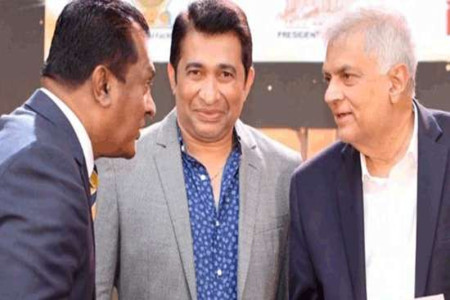Formulas focusing cost recovery and cost reflection being considered
Final draft expected in December
The Ministry of Water Supply and Estate Infrastructure announced this week that water tariff reforms are underway, with a primary focus on ensuring “fairness” among specific user groups.
Water Supply Minister Jeevan Thondaman shares that the tariff reform aims to prioritise the domestic category (75 percent users) and Samurdhi category (1.58 percent), over industries, “without pressuring them”.
As per the discussions that are currently underway, the authorities are primarily considering two parallel formulas—one focused on cost recovery and the other on cost reflection.
“The final draft of the tariff formula is expected in December, with a commitment to avoiding unnecessary burden on the public. There is a possibility of an increased tariff rate for commercial institutions, with an emphasis on ensuring fair rates for charitable institutions, hospitals, and schools,” said Thondaman, addressing a media briefing this week.
He stressed the need to have a sustainable tariff formula that considers debt servicing and capital expenditure, but one that does not overburden the public.
A meeting has been requested with the State Minister of Finance Shehan Semasinghe, and State Minister of Industries Dilum Amunugama to take the discussions further.
Thondaman also noted that while the government plans to engage in public-private partnerships to enhance water quality and reduce costs, there is no intention to sell or privatise water although the projects would involve private sector participation.
He went on to acknowledge the operational losses, citing increased electricity prices and existing debt as contributing factors.
Furthermore, he touched on the government’s commitment to efficient water conservation, specially in areas with inadequate access to clean water. One such effort is the plan for a desalination plant in Jaffna and the measures taken to prioritise water supply from villages and estates.
The Minister also emphasised the streamlining of the water resources management policy to implement a comprehensive water management plan.
Thondaman also refuted allegations that there is politicisation within the Water Board and clarified the appointment process for key positions. He pointed out that revenue for the Water Board has increased and plans are afoot to explore renewable energy sources to reduce energy costs.
DM


